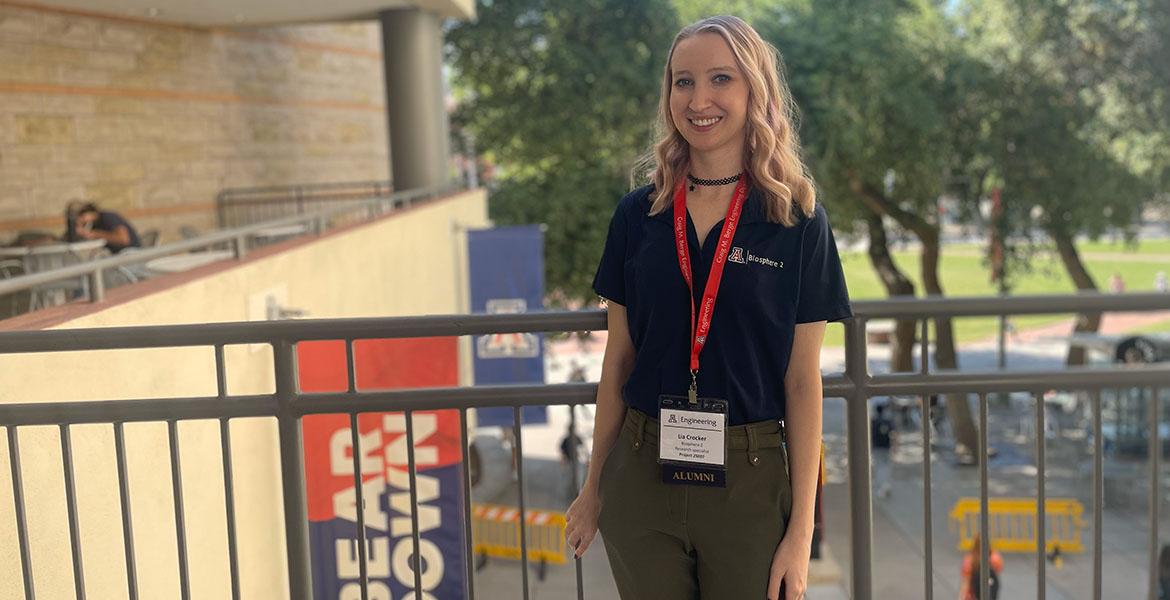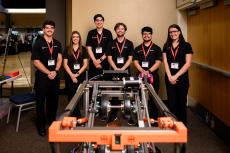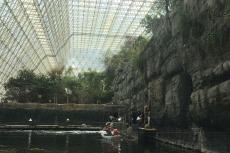Capstone team will help return coral to the Biosphere 2 ocean
Coral research at Biosphere 2 is at a critical point. The marine team is preparing to reintroduce corals into the facility’s ocean after 25 years of its reef being too damaged to support life and research.
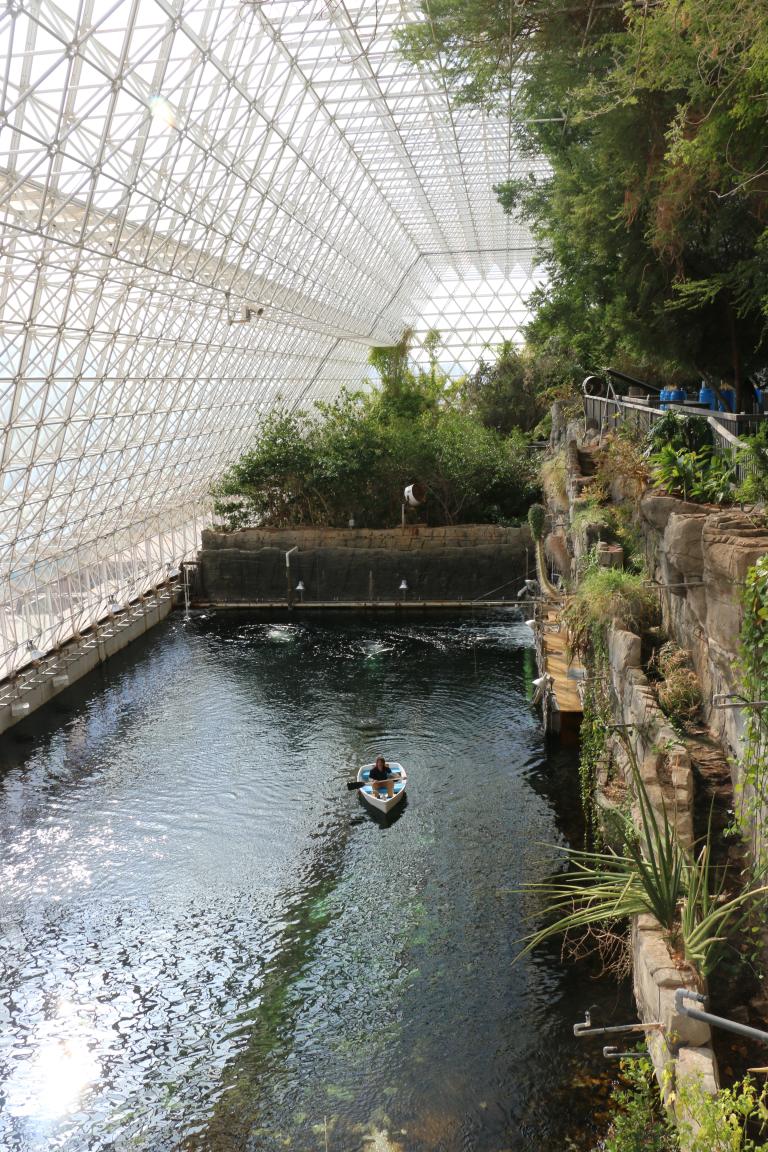
The reef was not well maintained for around a decade before the University of Arizona took over Biosphere 2 ownership in 2007, said Research Specialist Lia Crocker.
“We saw all the coral die. Algae left us with a super-degraded reef, which is what we see with reefs today,” said Crocker.
Since 2018, the marine team has removed tons of algae and tested methods to restore reef health. Now, Biosphere 2 is sponsoring an Interdisciplinary Capstone team to develop a precise light control system.
Seven students will work with Biosphere 2 advisers, including Crocker, over the coming academic year to complete the project as part of the Craig M. Berge Engineering Design Program. The team will present its finished project at the 2025 Craig M. Berge Design Day and compete with other student teams for tens of thousands of dollars in cash prizes.
After Design Day, researchers will install the lights and move corals from two 325-gallon tanks, known as raceways, to the ocean. The facility will then support more robust efforts that identify ways to mitigate climate change's effect on coral.
“It’s the perfect opportunity to rehabilitate a degraded reef,” said Crocker. “Since we have environmental control, we can push the ecosystem 30 years into the future and see how it responds to stresses we know are predicted soon with climate change.”
Why light matters
As the academic year started and Crocker and her colleagues recruited students to join the capstone team, construction had just begun over the Biosphere 2 ocean. A housing structure for the new lighting system will be ready by the end of 2024. When the students complete the project in May 2025, their design will become a crucial part of coral reintroduction.
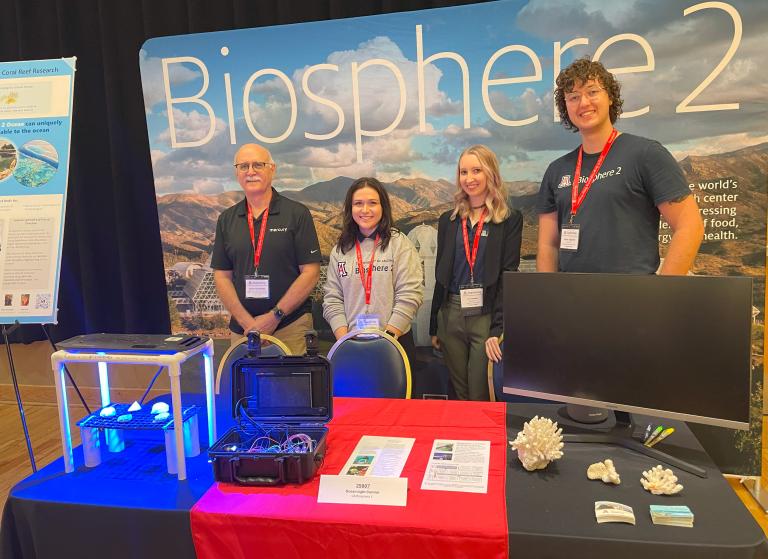
“Lighting is key because the Biosphere 2 glass blocks out all UV light and takes the sun’s visible light down to 30% to 50%. It’s nowhere near the amount of light coral needs to thrive,” said Crocker.
The raceway tanks have systems that allow researchers to carefully manipulate lighting conditions. But no commercial product is available for the much larger ocean. The students will design and prototype a system and user interface the marine team can use to remotely custom-program lighting power, intensity, wavelength and duration.
“Having that level of control over our lighting array will really advance our research capabilities and attract collaborators from around the world to do even more kinds of research that the Biosphere 2 ocean is uniquely suitable for,” Crocker said.
An inspiring fit
Advising a capstone team is a new experience for Crocker, who hopes to work with and guide students who are as invested in ecological sustainability as she is.
“I chose to be a biosystems engineer because we work toward solutions for problems presented by climate change,” she said.
As a student planning for the future, Crocker didn’t want to take the “traditional work for an engineering firm route.” She had moved to the UA from Pittsburgh with a desire to augment her studies at Biosphere 2 and secured an internship for the summer preceding her senior year. For her own Interdisciplinary Capstone, Crocker created and led a coral raceway monitoring project co-sponsored by Biosphere 2 and the biosystems engineering department. She stayed on at Biosphere 2 as a graduate student worker and began her career with her dream job when she completed an accelerated master’s in 2021.
Now the marine team’s sole engineer, Crocker upgrades the ocean’s life support systems, oversees student workers, obtains grant funding, and plans ways to execute the overall engineering vision for the ocean. For example, the team will install equipment to test acidification effects on coral.
Crocker wants to serve as an example to students with similar interests and broaden their perspectives on ways to apply their skills.
“I hope this inspires the students on the capstone team to find work in a sustainable field that not only benefits the planet, but also allows them to thrive in what they enjoy doing.”


